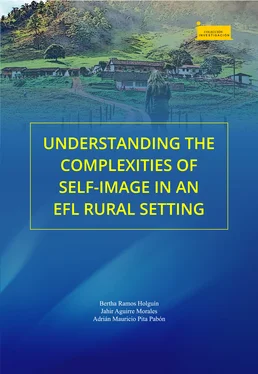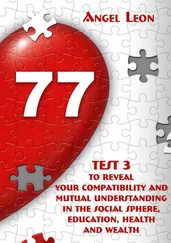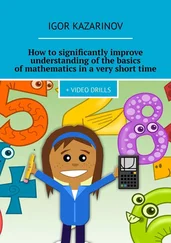UNDERSTANDING THE COMPLEXITIES OF
SELF-IMAGE IN AN
EFL RURAL SETTING

Bertha Ramos Holguín
Jahir Aguirre Morales
Adrián Mauricio Pita Pabón
Universidad Pedagógica y Tecnológica de Colombia
2021
| Understanding the Complexities of Self-Image in an EFL Rural Setting / Comprendiendo las complejidades de la auto-imagen en un contexto rural de enseñanza de inglés como lengua extranjera / Ramos Holguín, Bertha; Aguirre Morales, Jahir; Pita Pabón, Adrián Mauricio. Tunja: Editorial UPTC, 2021. 60 p.ISBN 978-958-660-472-7ISBN Digital 978-958-660-475-8 1. Self-image. 2. Rural education. 3. Rurality. 4. Narratives. 5. Life Stories(Dewey 370 /21). Thema JN - Educación |

Primera Edición, 2021
50 ejemplares (impresos)
Understanding the Complexities of Self-Image
in an EFL Rural Setting
Comprendiendo las complejidades de la auto-imagen en un contexto rural de enseñanza de inglés como lengua extranjera
ISBN 978-958-660-472-7
ISBN Digital 978-958-660-475-8
Proceso de arbitraje doble ciego
Recepción: junio de 2020
Aprobación: agosto de 2020
Colección de Investigación UPTC N.° 180
© Bertha Ramos Holguín, 2021
© Jahir Aguirre Morales, 2021
© Adrián Mauricio Pita Pabón, 2021
© Universidad Pedagógica y Tecnológica de Colombia, 2021
Proceso de arbitraje doble ciego
Recepción: junio de 2020
Aprobación: agosto de 2020
Colección de Investigación UPTC N.° 180
© Bertha Ramos Holguín, 2021
© Jahir Aguirre Morales, 2021
© Adrián Mauricio Pita Pabón, 2021
© Universidad Pedagógica y Tecnológica de Colombia, 2021
Editorial UPTC
Edificio Administrativo – Piso 4
Avenida Central del Norte 39-115,
Tunja, Boyacá
comite.editorial@uptc.edu.co
www.uptc.edu.co
Rector UPTC
Óscar Hernán Ramírez
Comité Editorial
Manuel Humberto Restrepo Domínguez, Ph. D.
Enrique Vera López, Ph. D.
Yolima Bolívar Suárez, Mg.
Sandra Gabriela Numpaque Piracoca, Mg.
Olga Yaneth Acuña Rodríguez, Ph. D.
María Eugenia Morales Puentes, Ph. D.
Edgar Nelson López López, Mg.
Zaida Zarely Ojeda Pérez, Ph. D.
Carlos Mauricio Moreno Téllez, Ph. D.
Editora en Jefe:
Lida Esperanza Riscanevo Espitia, Ph. D.
Coordinadora Editorial:
Andrea María Numpaque Acosta, Mg.
Corrección de Estilo
Claudia Helena Amarillo Forero
Libro financiado por la Dirección de Investigaciones de la UPTC. Se permite la reproducción parcial o total, con la autorización expresa de los titulares del derecho de autor. Este libro es registrado en Depósito Legal, según lo establecido en la Ley 44 de 1993, el Decreto 460 de 16 de marzo de 1995, el Decreto 2150 de 1995 y el Decreto 358 de 2000.
Libro resultado de investigación con SGI 2325
Citar este libro / Cite this book
Ramos Holguín, B., Aguirre Morales, J. & Pita Pabón, A. (2021). Understanding the Complexities of Self-Image in an EFL Rural Setting. Tunja: Editorial UPTC.
https://doi.org/10.19053/9789586604727
Abstract
In this book, we looked at self-image from a humanistic perspective. We see it as a dynamic and complex process that compromises self-respect and self-confidence. The protagonists of this story come from a rural area. They were a group of eleventh graders from a high school in Samacá, one of the 123 towns in the state of Boyacá, Colombia. As narrators of the story, we wanted to explore, analyze, and interpret how these adolescents perceived their self-image through their life stories under a narrative inquiry method. By telling their narratives, the students could reconstruct and re-signify their reality, while showing us who they are in relation to other people and their contexts. Therefore, life stories offered us the possibility to explore students’ inner and social worlds. This research study helped us increase our sensitivity to how the adolescents saw themselves as part of their rural contexts, as well as how this might affect their futures.
Keywords: self-image, rurality, narratives, life stories, self-respect, self-confidence
Resumen
En este libro comprendimos la auto-imagen desde una perspectiva humana. Es decir, como un proceso dinámico y complejo que se relaciona con el auto-respeto y la auto-confianza. Los protagonistas de esta historia provienen de una zona rural. Ellos son un grupo de estudiantes de grado once de un colegio localizado en Samacá, uno de los 123 municipios que conforman el departamento de Boyacá en Colombia. Como narradores de esta historia, quisimos explorar, analizar e interpretar como estos adolescentes percibían su auto-imagen a través de sus historias de vida, enmarcadas en un método narrativo. Al narrar sus historias, los estudiantes reconstruyeron y resignificaron su realidad mientras nos mostraban su relación con otras personas y su propio contexto. Estas historias de vida nos dieron la posibilidad de explorar su mundo interno y social. Incrementamos nuestra sensibilidad como investigadores y entendimos como los adolescentes se percibían en un contexto rural y las implicaciones que esto tiene para sus vidas futuras.
Palabras clave: autoimagen, ruralidad, narrativas, historias de vida, auto respeto, autoconfianza
TABLE OF CONTENTS
INTRODUCTION
THE TRIP THAT WE PLANNED
OUR FELLOWS IN THIS TRIP
Self-Image
Life–Stories
Rural Colombia
OUR REST AREAS TO REFLECT UPON THIS FIELD TRIP
Strategies for Data Collection
Life story.
Focus Group Interview.
School Context
Social Subjects
Ethical Issues
THE EXPERIENCES WE ENCOUNTERED IN OUR JOURNEY
Self-image is an Ambivalent Construction
The role of the parents.
The role of friends/partners.
The role of the school.
THE PHOTO ALBUM WE END UP WITH IN THIS VOYAGE
REFERENCES

INTRODUCTION
WHAT WE CARRY IN OUR LUGGAGE

Twelve years ago, when we created the research group TONGUE (Teaching on New Grounds Unexplored English Possibilities), we were interested in exploring students’ identities and self-images. We firmly believe that individuals, as human beings, are the most valuable part of society. Likewise, each student represents a whole world. One which is independent and unique. As teachers, we have strived to understand, interpret, see, and live our students’ worlds. In other words, we believe that we are called not only to teach, but to also to interpret our students’ contexts to better understand who they are as people. It is only after exploring our students’ lives that we can proceed to teach and learn.
We see the process of teaching and learning English as a symbiosis, in which students and teachers can learn and grow with each other. Time and time again, we have noticed that teaching and learning a language come second to understanding our students. Comprehending and connecting to our students’ realities have aided the English as a Foreign Language (EFL) process, in which students have become protagonists of their own learning. Because of this, we urge the need to listen to, amplify, and echo our students’ voices.
Читать дальше















